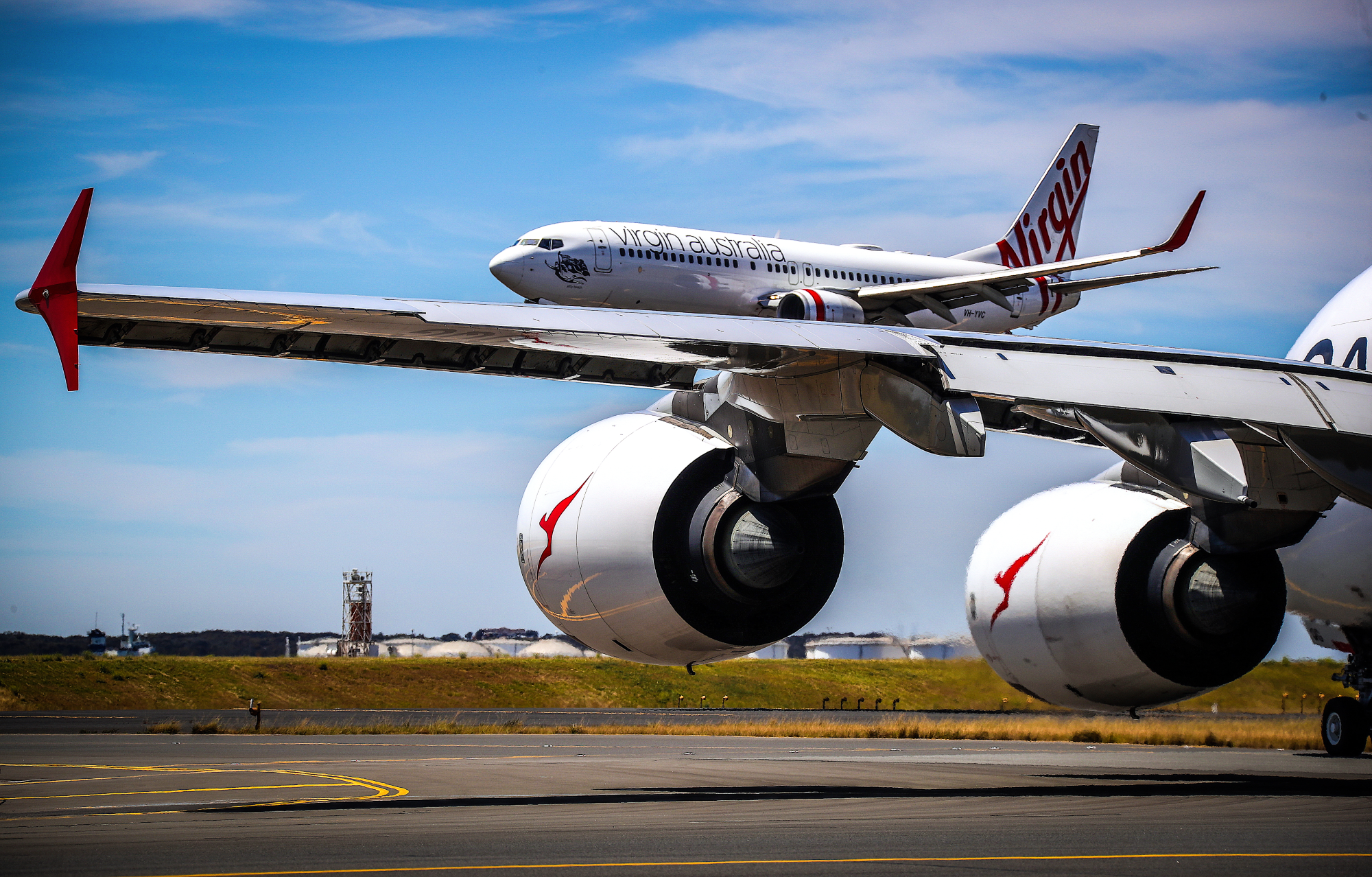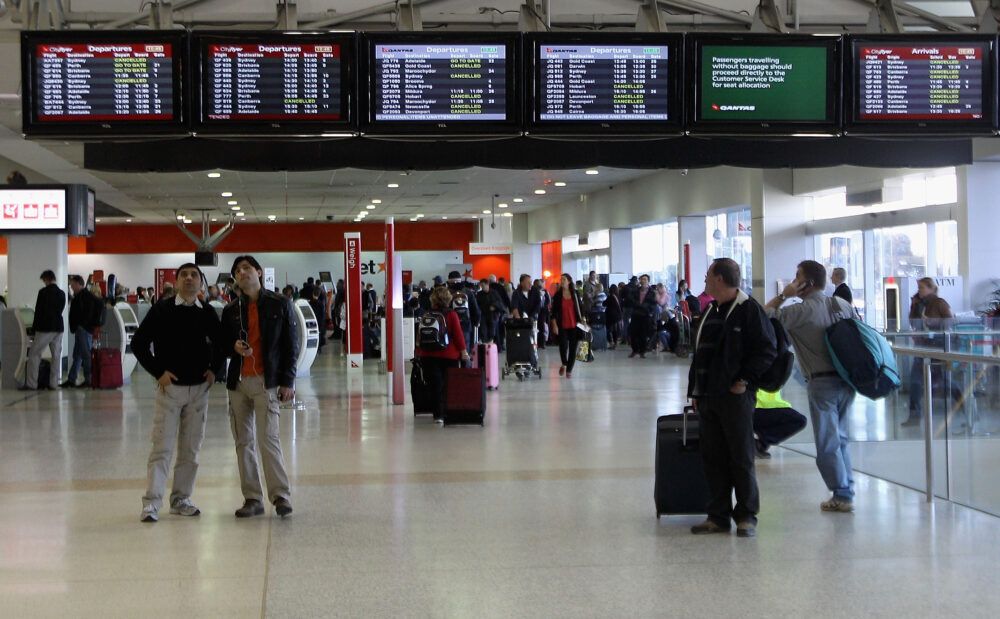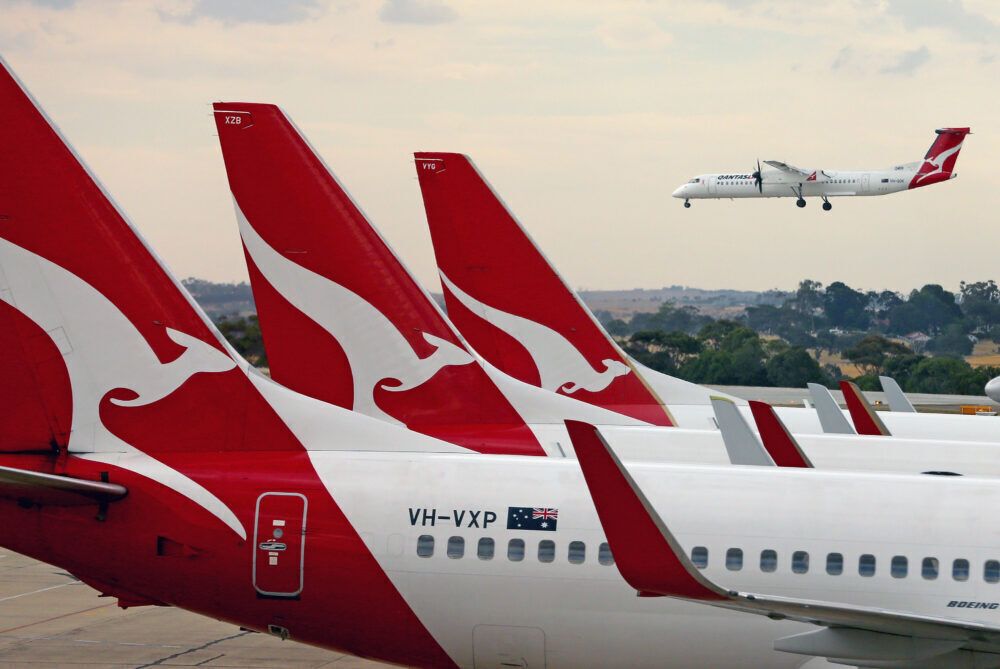Australia's Transport Workers’ Union (TWU) is calling on the Federal Government to mandate rapid antigen pre-flight testing for both passengers and crew. This follows passengers on multiple recent domestic flights being deemed close contacts of COVID-19 infected people and ordered into isolation. This occurred after traveling on the same flights as a passenger and flight attendant who later tested positive.
"We are saddened but unfortunately not surprised to learn that there have been more positive cases on domestic flights," says TWU National Secretary Michael Kaine.
"The Federal Government has inexplicably and irresponsibly ignored domestic aviation as a super-spreader industry. Domestic flight crew are still to this day missing from vaccine priority lists despite TWU members calling for eligibility for months."
Stay informed: Sign up for our daily and weekly aviation news digests.
TWU campaigns to see rapid antigen testing in domestic airport terminals
The TWU represents airline industry employees who work in ground handling, refueling, catering, cabin crew, aviation security, and customer service roles. The union is usually a vocal critic of Australia's airlines but is now turning its sights on Australia's Federal Government and its vaccination rollout.
"It is inexcusable that so many frontline workers, particularly those traveling interstate in tightly packed aircraft, have not been protected against a highly contagious virus that has gripped the globe for well over a year," says Kaine.
Around 7% of Australians have been fully vaccinated. Take-up has been low amid a shambolic rollout regime and the unwillingness of the Federal Government to set a timeline to lift travel restrictions and freely allow Australian citizens to start moving again.
Testing passengers would minimize risk & maximize confidence says TWU
Now the TWU is expanding its call for testing to include passengers moving through airports. The TWU wants to see rapid antigen tests which require a nasal swab and can produce results within 15 minutes. The tests have an average 72% accuracy.
"We have to minimize risk and maximize confidence," the TWU National Secretary told Australia Today on Thursday morning. "If you have a test that can give you an answer in 15 minutes, then you are going to catch a greater number of cases, and you are going to make people more confident about flying."
The call for pre-departure testing follows several Virgin Australia domestic flights been flagged. This followed an infected flight attendant working on five flights and infected passengers flying on other flights. None of these people traveled knowing they were infected. But in the wash-up, other passengers on the flights and in airport terminals at the same time are now required to undergo testing and isolation regimes.
"Airlines don't want to be agents of the virus moving across the country," says Kaine. But he also argues airlines need to keep flying to maintain interpersonal connectivity and keep the economy moving. Kaine says a TWU survey reveals 87% of respondent aviation workers said they'd be happy to undergo rapid testing at airports.
Who would wear the costs of COVID-19 testing?
Just who would wear the cost of airport testing for domestic passengers and airport workers is unresolved. Australia's big domestic airlines - Qantas, Jetstar, Virgin Australia, Alliance, and Rex, are likely to plead hard times. The various owners of Australia's airports may not embrace the extra impost either. Ultimately, passengers would likely directly or indirectly pick up the tab for pre-departure testing. Airport workers and crews should see any costs covered by their employer.
But right now, the TWU's idea is just that. The proposal has merit, but many stakeholders would need to get onboard to make it happen. Given Australia's chaotic approach to managing COVID-19 at present, that seems like a big ask.
What do you think? Is the rapid testing of airport workers and domestic airline passengers a good idea? Is it likely to happen? Post a comment and let us know.



